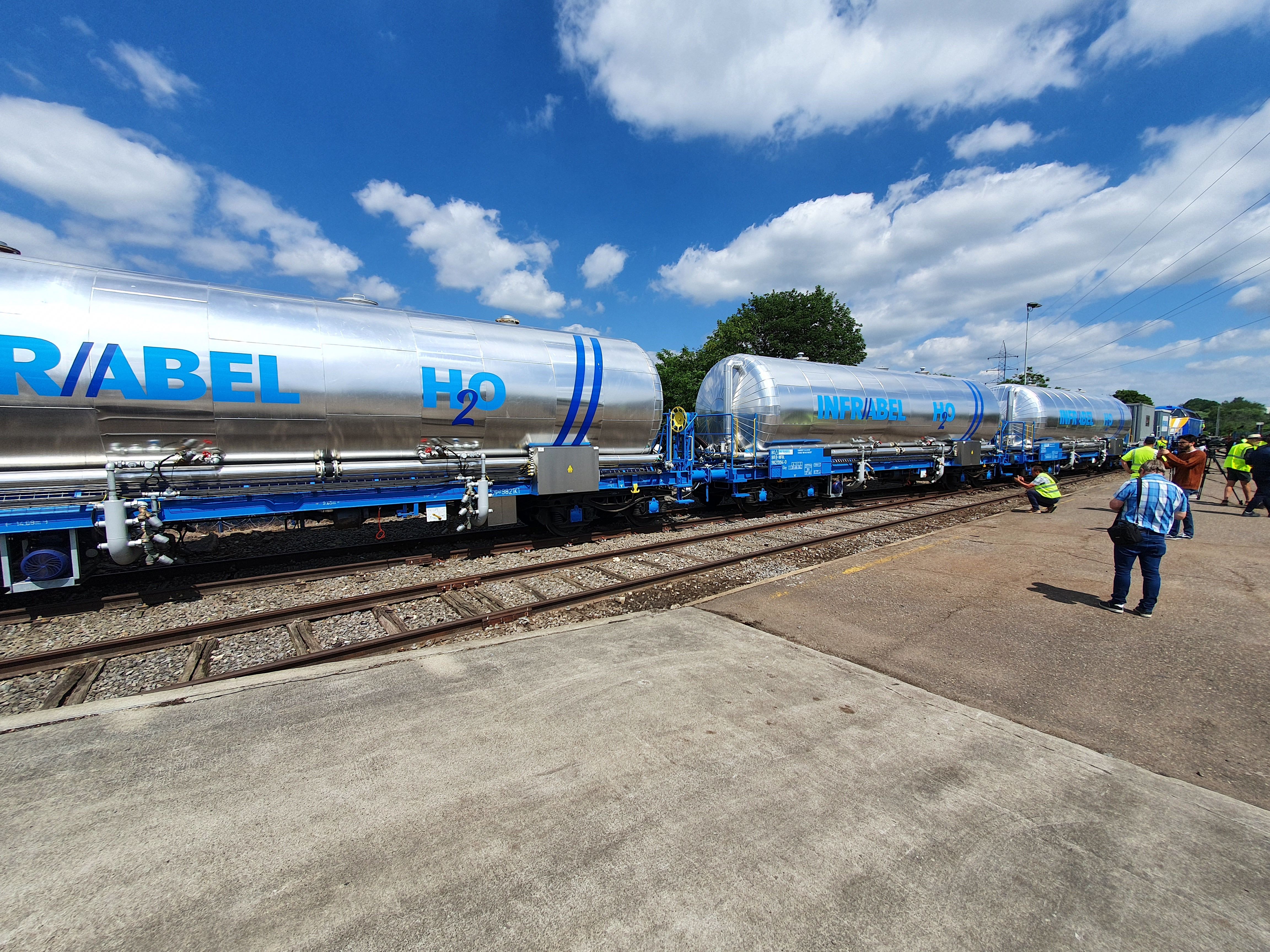Infrabel is testing a hot water train to reduce the use of herbicides on tracks

Infrabel, the operator of the Belgian railway network, is testing a hot water train to help reduce the use of herbicides against weeds on the tracks, as the hot water slows down the growth of the weeds. The new train prototype was presented Monday to federal Mobility minister Georges Gilkinet (Ecolo) and Flemish Environment minister Zuhal Demir (N-VA).
In Belgium, but also in other countries, herbicides - especially the controversial glyphosate - are still needed to keep the tracks free of weeds. Although Infrabel was granted an exception to the pesticide ban, the railway manager wants to switch to an environmentally friendly method as soon as possible. Between 2015 and 2019, Infrabel says it has already managed to more than halve the use of glyphosate.
8,000 kilometers
With the hot water train Infrabel is taking the next step in environmentally friendly weed control. The 180 m long unit, which consists of two locomotives with five wagons, will control weeds on more than 8,000 km of railway line. Three wagons are well-insulated tanks containing three times 50,000 litres of water heated to 90° Celsius. The two other wagons contain the heating equipment, a power generator and computers that control the spraying systems.
In its current configuration, the H2O train travels at 20 km/h, which should be fast enough not to interfere with train traffic. When three to six m³/km of hot water is sprayed, the train can treat dozens of kilometres per day. The process must be repeated every month and a half from May to October, which amounts to three to four passages per year - compared to two with herbicides.
Own technology
Infrabel took inspiration from Switzerland, which was the first country to test a train that combats vegetation with hot water. The new train with its own technology is now undergoing a second series of tests, following a first positive session in the autumn of 2021. The test track runs on a section of the railway axis from Antwerp to the German border.
In the sidings, such as the marshalling yards, Infrabel wants to reduce the areas treated with pesticides by half by the end of 2023. This will be achieved through a combination of techniques: in addition to mechanical techniques such as mowing, weeding or grubbing, Infrabel is focusing on more environmentally friendly alternatives such as pelargonic acid and the hot water train.
"Pesticides do indeed control weeds, but they also have a negative impact on the environment," Flemish minister Demir says. "Today, Infrabel is still responsible for the majority of pesticide use in the public service sector. If we want to get rid of pesticides, we have to reduce them."
"That is why the federal government has earmarked an additional two million euro for Infrabel to speed up its search for sustainable solutions for weed control, including the hot water train. Our country wants to play a pioneering role in this," federal minister Gilkinet adds.
"The sooner we can do without pesticides to maintain our railway network, the better. With this weed-killing hot-water train, Infrabel is testing out a first that could be groundbreaking for Europe," minister Gilkinet concludes.
(AHU)
#FlandersNewsService
© BELGA PHOTO LAURENT CAVENATI - Illustration picture showing an innovative Infrabel prototype train with the aim of dispensing with herbicides. For several years, Infrabel has been working to reduce its use of herbicides. But in Belgium, as elsewhere, these chemical substances remain essential for weeding the tracks, in order to guarantee the safety of rail traffic and personnel. At the same time, the network manager is looking for technically and economically realistic alternatives. The prototype train, equipped with an innovative device, is currently being tested in the east of the country.
© BELGA VIDEO LAURENT CAVENATI